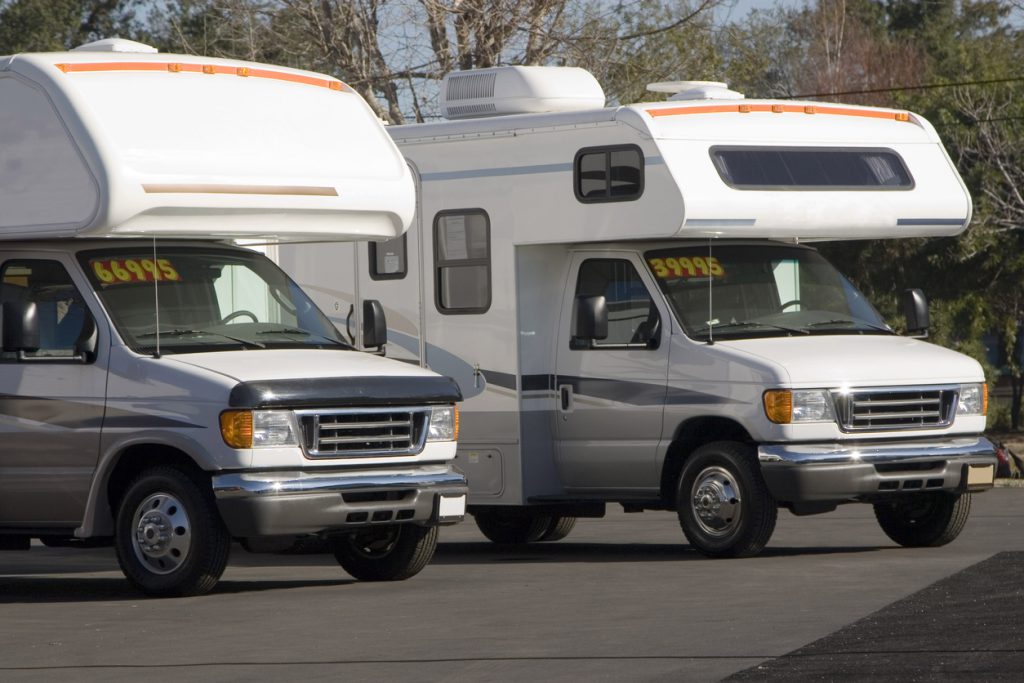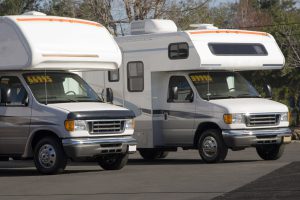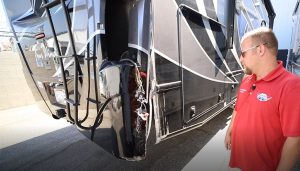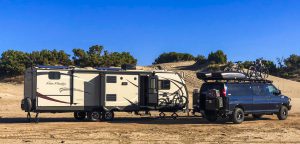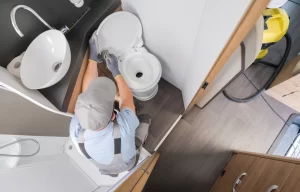Is it hard to imagine selling your beloved RV? Even the most perfect motorhome or trailer sometimes just isn’t right for you anymore. Families may decide they want more space. You may want to upgrade to a newer model. Maybe you’d like to downsize or just try something new.
A few of you may decide that RV life just isn’t for you right now.
Whatever the reason for selling your home on wheels, you need to get ready for the RV sale.
Preparation makes for a smoother sale and a better price. Here are things you can do to make the process easier for you and your potential buyers.
Plan Ahead
Don’t put your RV on the market as soon as you return from your last RV camping trip. Make a plan. The last thing you need is to hit a snag just as you’re about to make your RV sale.
Gather Paperwork
Selling an RV is not so different from selling a car or truck. Check with the DMV in your state to find out their requirements. In some places, you’ll need proof that your vehicle has passed an emissions test.
Your state may or may not require a bill of sale documenting your transaction. Even if it is not required, it’s a good idea to have a record of your RV sale. Your DMV may require you to notify them when your sale is complete.
You should also gather other relevant documents. Most importantly, locate the title and owner’s manual. Assemble the manuals for all of your RV appliances.
If you still have active warranties, make sure you have the paperwork. Those warranties may or may not transfer, but be ready to provide the details to potential buyers.
Get a vehicle history report, if possible. Also known as a VIN Check, this report tells buyers a lot about a vehicle. It documents past ownership, details maintenance and repair history, and checks the title. It also tells a buyer if the RV has had flood damage, has been in an accident, and more.
Having a VIN Check on hand is an excellent show of good faith. You’re letting buyers know they won’t face unwelcome surprises after the purchase. The report will also help you determine a fair price when you put your RV on the market.
Inspection
Leisure Coachworks recommends regular inspections for every RV throughout its lifespan. While you’re using the vehicle, inspections are important for identifying potential problems while they’re small and easy to repair.
When you sell an RV, an inspection serves two purposes:
- Assures and informs potential buyers about the condition of your RV
- Gives you a chance to do repairs and maintenance that make your vehicle more attractive to buyers.
Every RV owner knows that little issues can lurk in even an optimally maintained motorhome or camper. An inspection provides essential information to both the buyer and the seller.
RV Repair and Maintenance
Before you put your RV on the market, think hard about what maintenance and repairs you want to perform.
Talk to your RV repair shop about what makes your vehicle more valuable or more attractive to buyers. You may not want to fix every little problem if it will cost more than you’ll get in return.
Vital systems should be repaired. You should also do any maintenance that’s due. Change the oil and filters, replace worn sealants, and lubricate slide outs. Buyers expect lights to turn on, faucets to run, and heaters to heat. Your inspection will let you know which systems need attention to function properly.
Cosmetic RV repair is more subjective. A used RV may have a few stains or other signs of wear.
Fix what you can at a reasonable price.
Don’t replace all the flooring because there’s a small stain in one corner.
Don’t forget to take a close look at the outside of your RV. Fix chipped paint, replace worn decals, and spruce up outdated lighting. You don’t want to lose your RV sale before your buyer ever enters your motorhome.
RV Upgrades
If you’re selling an older RV, talk to your shop about some inexpensive upgrades that will increase the value of your vehicle. Replacing worn carpet or upholstery can update the appearance of the whole interior.
Even something as simple as changing the hardware on your cabinets and drawers can give your RV a shiny new touch.
Larger upgrades may not be in your best interest. Discuss the cost vs. the selling price benefit with a reliable technician. Buyers may also prefer to have their own custom work done.
RV Cleaning
That brings us to cleaning. This is arguably the most important part of your RV sale process.
When someone looks at your RV, they know that it has been used. They know this in their heads. But in their hearts they want it to look as new as possible. They do not want to see coffee rings or grimy sinks.
A thorough general cleaning is the first step. It is not, however, the last step. You need to give that rig a deep clean before you invite a potential buyer inside. Odors and stains can creep in from a variety of sources.
Clean the carpet and upholstery. Get rid of as many stains as possible. Use a good cleaning service or professional-grade products to rid the interior of odors.
Remember, it isn’t only nasty odors you need to remove. A new owner doesn’t want their RV to smell like your body lotion. You want that vehicle to smell nothing but clean.
Sanitize and empty your tanks. Don’t risk having a buyer encounter a plumbing odor.
Those are all pretty intuitive steps to take when cleaning an RV for sale. Other things are easy to forget. Clean your windows, screens, and vents. Make sure cupboards and storage compartments are spotless.
Clean your appliances, inside and out. Clean air vents, the dashboard, captain’s chairs, and shelves. Take a few minutes to wipe down walls and polish mirrors. Check corners where dust and dirt can build up unnoticed.
Give the outside a thorough wash. Your RV probably has more exterior hiding places for grime than your car. Clean your awnings, around exterior lights, roof, slides, and any covers. Don’t forget to clean up all the exterior compartments, including those for items like your water heater.
You can do this cleaning yourself or bring your coach into your shop and have a professional deep cleaning. No matter how you go about it, make sure your RV is sparkling before showing it to buyers.
RV Staging
Did you think staging was only for houses? Nope! Make your RV look as nice as possible for potential buyers. Take out personal items and get rid of any clutter.
Your goal is to present a clean, neutral palette. Show off all the amenities without making buyers feel like they’re invading your home.
Open curtains and shades for natural light. Turn on lamps for ambiance lighting. Have a nice doormat and set up a small table and chairs outside the vehicle. If you have an awning, open it up!
Remember, you want every potential buyer to imagine their RV camping trips. Staging the exterior as living space makes everything feel bigger.
Take good pictures. It isn’t as hard as it used to be to get beautiful images of both the exterior and interior of your RV. If you don’t trust your skills, ask a friend or family member to help out.
Those pictures will be your buyers’ first impression of your RV. You want it to be a good one.
RV Sale Price
Deciding on a fair price probably feels like the hardest part of selling your RV. If you’re selling a vehicle filled with good memories, you may be looking past its flaws.
First, get an objective number from a source like Kelley Blue Book for your vehicle’s make, model, and year. This is just a first step, but it is at least a place to start.
Next check the market. Look online and at local dealers. You need to know what the market will bear for your RV sale.
Now is the hard part. Be honest with yourself about the condition of your motorhome or trailer. If it needs repairs or a lot of updates, your price point will be lower.
Contact us at Leisure Coachworks if you’re thinking about selling your RV. We’ll help with everything from inspections to cleaning to repairs and maintenance. Our technicians can help you set a reasonable price.
It takes good preparation and good advice to be ready to sell an RV. We’ll help you get through that RV sale and on to your next adventure.
